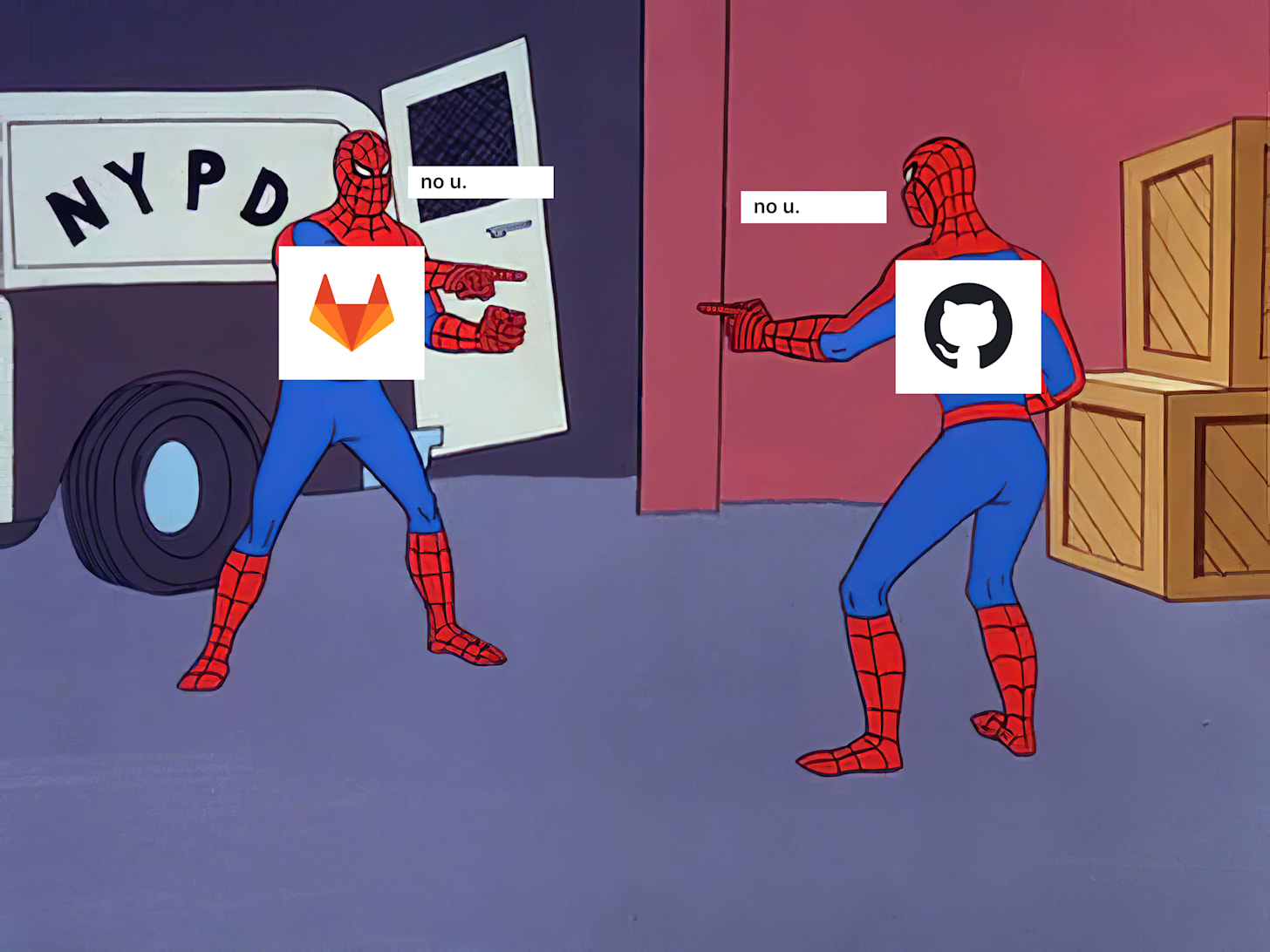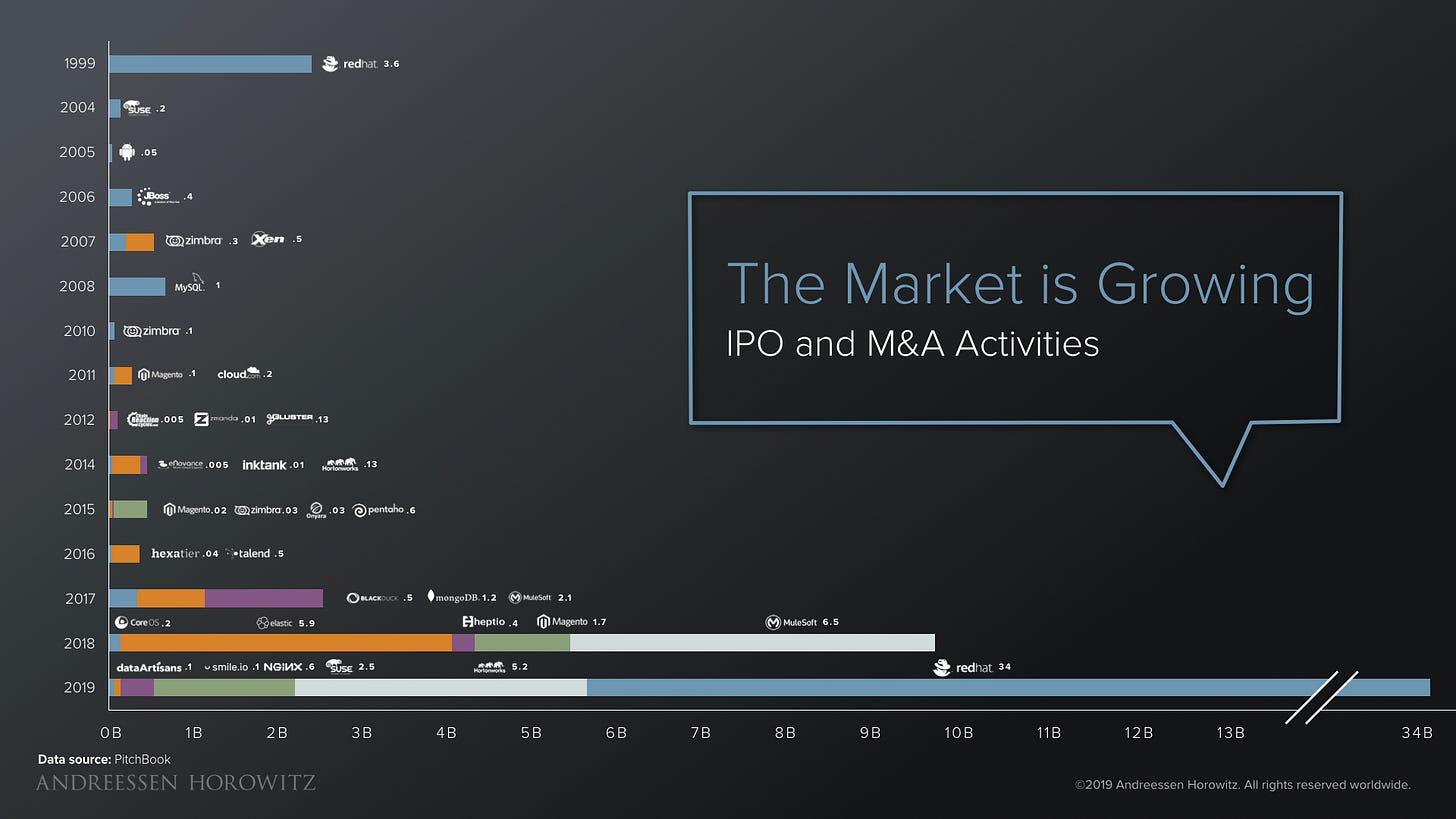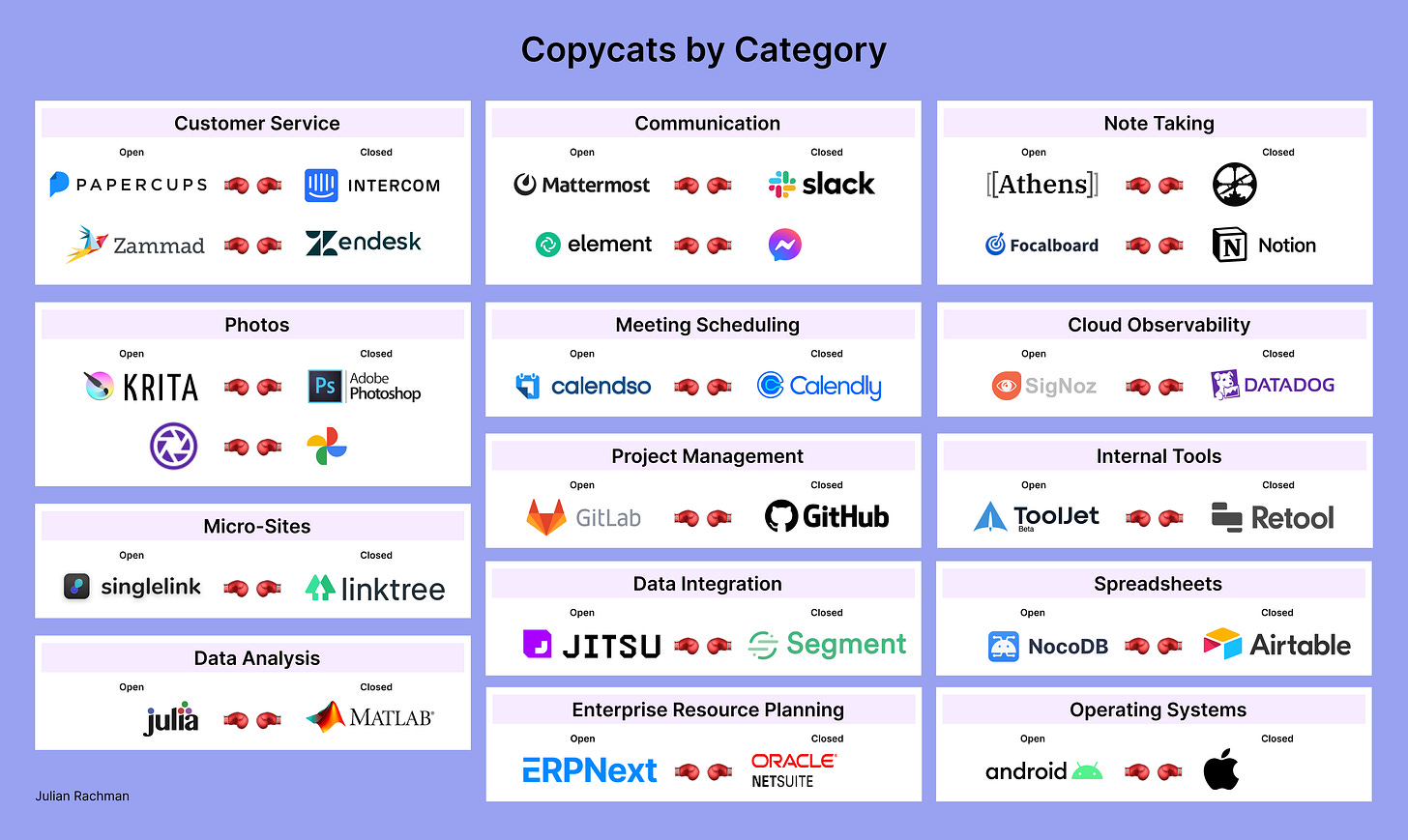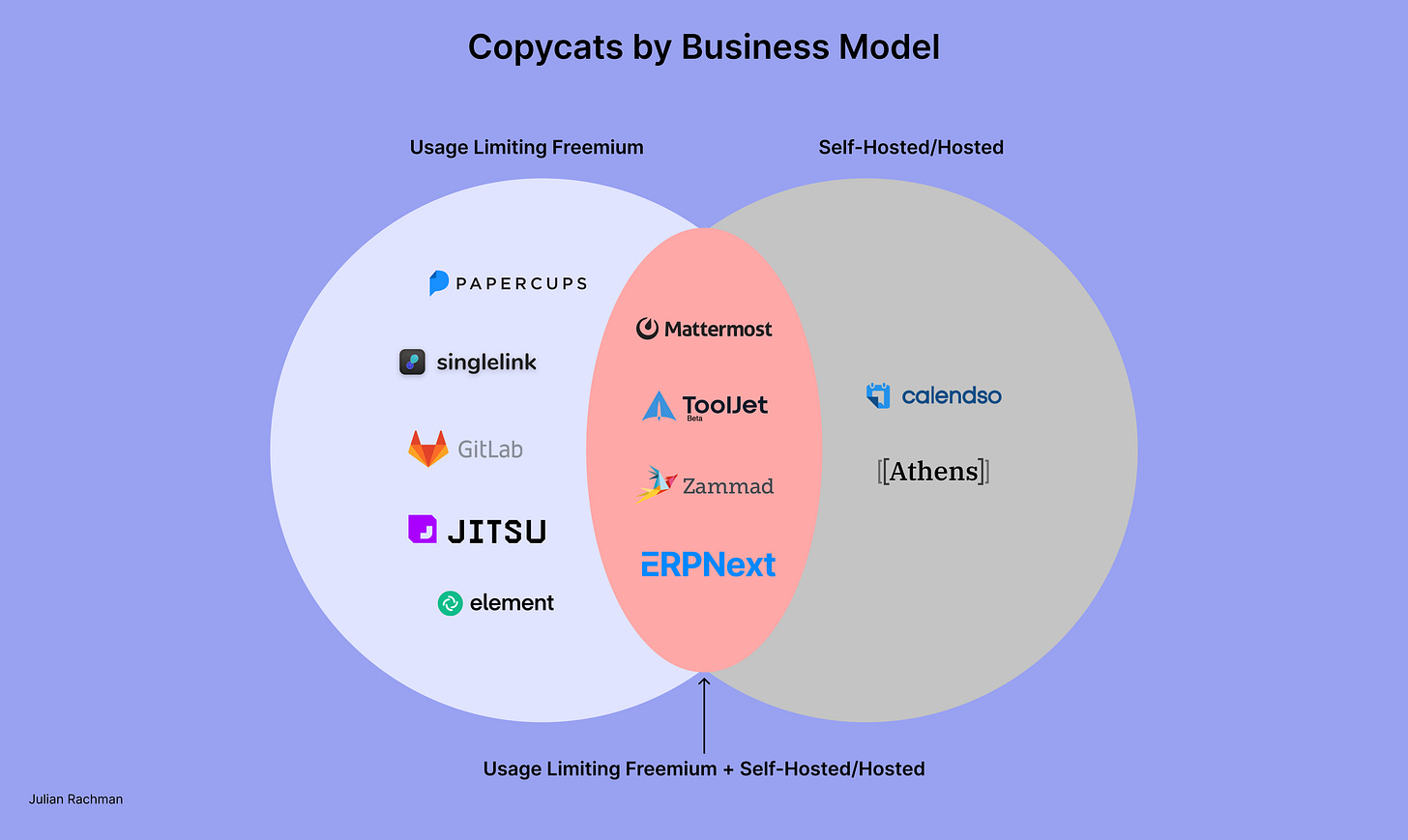Open Source's Copycat Arc
"It's _ _ _ _ but open source"
Over the past 2 decades, it has become ever more clear that open source infrastructure has laid the foundation for almost all thriving software companies today. The open-source ecosystem started as a revolution against unfair closed-source software companies that were taking advantage of their clients. This was due to the gigantic monopoly-like moat these large companies were able to create around their licensed software products.
Certainly this revolution hasn't hit the brakes yet and open-source builders are seeing today's closed-source tools and infrastructure as an opportunity. Instead of waiting for them to build their moat, how about challenging them head-on by making an identical product backed by a larger growing contributor community, better security, and increased customizability out of the box.
Welcome to open source's copycat arc.
At the very beginning of the open-source revolution came a surge of foundational open-source offerings around foundational components of software like operating systems and databases. In the 1990s, Linux quickly gained traction as the leading operating system and MySQL emerged as the dominant database provider by directly challenging Oracle's dominance at the time. Since then, there has been no shortage of new open-source companies who have successfully commercialized from being just a project that developers loosely collaborated on. And, over 50 startups have gone on to either go public or be acquired.
"In 2001, Microsoft CEO Steve Ballmer called Linux 'a cancer.' Now, even Microsoft uses open source in its technology stack and invests heavily in contributing to open source projects. As a result, the next open source startup is as likely to spin out of a major tech company as out of an academic research lab or a developer’s garage." — Peter Levine
With our growing ability to access any information across the internet, the time between recognizing a new dominating software tool and building an open-source copy of that tool has shrunk exponentially
The number of verticals these open-source copycats impact is continuing to grow into areas where the following are prevalent:
Teams need more control and customizations despite the closed-source offering being pretty good.
The current closed-source offering isn't available to everyone due to constraints such as cost, business stage, and other factors.
One of the few known open-source business models fits the kind of product being offered and people are willing to pay for the alternative.
Looking deeply at these open-source copycats, there are 2 main misconceptions that people think about when looking at these kind of companies in conjunction with their closed-source counterparts:
"These copycats are competing directly with their closed-source competitor." The copycats are actually more focused on providing accessibility to tools that weren't accessible to anyone with the closed-source solution and creating ways for teams to take control over the tools they are using.
"These copycats will not grow into big businesses." Most of the time, the copycat product is the foundation for something way bigger than just being the "open-source alternative to _____." For instance, back in 2011, GitLab didn't want to just be the "open source alternative to GitHub;" they wanted to be the open DevOps platform where every knowledge worker comes to collaborate.
The open-source copycatting arc is a huge indicator that open source is here to stay and is already disrupting every closed-source winner in their vertical.
"What is clear is that open source is no longer a fringe approach to software. When top companies around the world are polled, few of them intend to have their core software systems be anything but open source. And if the Fortune 5000 migrate their spend on closed source software to open source, we will see the emergence of a whole new landscape of software companies, with the leaders of this new cohort valued in the tens of billions of dollars." — Mike Volpi
If you’re interested in checking out the open-source companies/products that I mentioned in this issue, here they are!:
Communication: Mattermost, Element
Note Taking: Athens Research, Focalboard
Meeting Scheduling: Calendso
Cloud Observability: SigNoz
Micro-Sites: Singlelink
Project Managment: GitLab
Internal Tools: ToolJet
Data Integration: Jitsu
Spreadsheets: NocoDB
Data Analysis: Julia
Enterprise Resource Planning: ERPNext
Operating Systems: Android






This is really good bro!